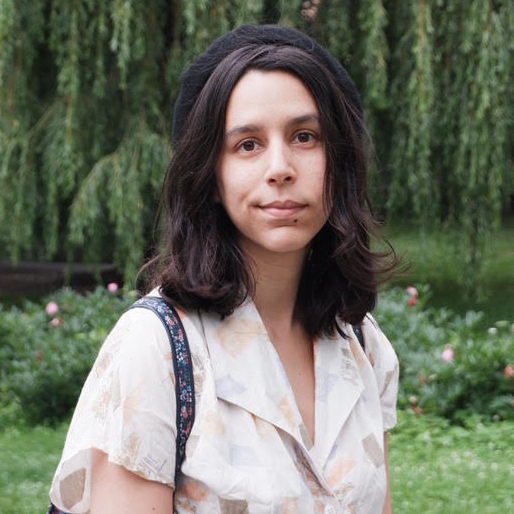As you prepare to look for a job in Portugal, there are several documents you need to gather, including your CV or resume, cover letter, and, potentially, a portfolio. You should adapt your resume to the job you’re applying for and translate it into Portuguese if needed. Understanding Portuguese business etiquette may also come in handy if you want to avoid any cultural faux pas during the interviewing stage.
Keep reading for more on the following topics:
- Applying for a job in Portugal: what to expect
- Writing a CV in Portugal
- Cover letters in Portugal
- Job interviews in Portugal
- What to expect in a Portuguese job interview
- Dress code and appearance for job interviews in Portugal
- Questions to expect in a Portuguese job interview
- Questions to ask in a Portuguese job interview
- When are salary and benefits discussed during the hiring process
- Tips for job interviews in Portugal
- Online and phone interviews in Portugal
- Recruitment tests and tasks in Portugal
- Qualifications in Portugal
- After a Portuguese job interview
- Useful resources
TopCV
Applying for jobs in Portugal? Learn how to tailor your CV for the local job market and make it stand out from the crowd with a little help from TopCV. Their CV experts are on hand to provide a free, confidential review to help you make your resume shine and you land you an interview.
Applying for a job in Portugal: what to expect
Most jobs in Portugal are advertised in Portuguese. However, you will see some offers in English, usually for international companies or remote positions. Unless stated otherwise, you should send an application in the same language as the job ad. Most interviews are in Portuguese, but you may have to prove your fluency in other languages.

When looking at a job ad in Portugal, you will usually find the following information:
- Job title
- List of tasks or responsibilities
- Personal requirements (e.g., language skills, educational qualifications, previous experience)
- What is offered (e.g., training, remote working)
- Any additional preferences (e.g., driving permit)
- Application deadline
- Contact information
The application process
You can find a job in Portugal at job portals like NetEmpregos, LinkedIn, or directly at a company’s website in the careers section. Online application forms are becoming more popular, but usually, you have to send an email to the contact mentioned in the job description.
You should introduce yourself in the email and attach a copy of your Portuguese CV. A cover letter isn’t always necessary, but in some cases, it can make you stand out.
If you’re not sending a cover letter, you can at least include a couple of paragraphs on what you like about the job and why you’re the ideal candidate for it in the email body. For creative jobs, you may want to include a link to your portfolio or attach it to the email (if requested)
The application process can last anywhere from one to three months. A member of the company’s HR team will usually review the applications and choose the candidates they think fit best with the role. Successful candidates are contacted over the phone or email. If you haven’t heard back in a week or so, you can follow up via email. If there’s no response, odds are your application was not successful.
Writing a CV in Portugal
Portuguese CV structure
A CV, also known as currículo in Portuguese, is a helpful document for recruiters as it briefly showcases a candidate’s experiences and skills. In Portugal, a CV should be typed in a clear font and concise (no longer than three sides of A4).
When writing it, try and keep it formal and focus on the most relevant information for the job. Avoid wordy paragraphs, and instead, add bullet points to structure your skills and experience. Before sending your Portuguese CV, be sure to proofread it to avoid any spelling errors.
Must-have sections in a Portuguese CV
- Personal details (dados pessoais) – Include first name and surname, address, phone number with international dialing code (if outside Portugal), email, date of birth, and nationality
- Photo – It is common to include a headshot, but it’s not mandatory. This usually goes on the right-hand corner.
- Work experience (experiência profissional) – List your previous employers in reverse chronological order, including company name, job title, starting and end date, and responsibilities
- Education (formação académica) – Mention post-secondary diplomas, the name of the school, and completion dates
- Language skills (conhecimentos de línguas) – List your languages and the level of proficiency, both written and spoken, including certifications
- Technical skills (competências técnicas) – Highlight technical skills related to the job
- References – You don’t need to provide references, but you can write “posso dar referências se necessário” (references will be provided on request)
Tips on writing a CV in Portugal
Tailoring your CV to different countries is essential if you want to fit in the local job market.

Below are a few tips on how to write a Portuguese-style CV:
- Add a small statement highlighting your qualifications and career goals
- Give an overview of your tasks and highlight your achievements in previous roles
- Include keywords that match the job for which you’re applying
- Add your LinkedIn profile or portfolio link
- Avoid old listings (unless you need a specific number of years of experience in a field) and focus on the most current positions
- If you’re not confident in your Portuguese, ask a local friend to review your resume before sending it
Portuguese CV templates
If you’re having trouble creating a Portuguese-style CV from scratch, you can always use a CV template as a base and customize it to the job. The following websites offer resume and CV templates:
Cover letters in Portugal
Sending an accompanying cover letter (carta de motivação) alongside your Portuguese CV may help you stand out from other candidates with similar experience. Ekonomista provides some helpful cover letter templates in Portuguese, but here are some general tips to consider:
- The letter should be typed and have a maximum of one page
- Avoid generalizations. If possible, research the name of the person in HR or the department you’re applying to and address the letter to them.
- Mention how you came across the position, why you want it, and what’s special about this company
- Relate your experience to the company’s activity and demonstrate how you are a suitable candidate
- Mention your availability for an interview
- End the letter formally with an expression like “Com os melhores cumprimentos” (best regards)
- Both sign and type out your name
Phrases to use in your cover letter
Below are some useful expressions in Portuguese cover letters:
- Dear Sir/Madam: Estimados Senhores or Estimado Senhor/a
- Dear Mr./Mrs: Caro Sr. or Exmo Sr. / Cara Sra. or Exma Sra.
- Should you need any further information, please do not hesitate to contact me: Se precisar de mais alguma informação, não hesite em contactar-me
- I look forward to hearing from you soon: Aguardo resposta assim que possível
- Regards: Cumprimentos
- Best Regards: Melhores cumprimentos
- Yours sincerely: Atenciosamente
Job interviews in Portugal
What to expect in a Portuguese job interview
Every job interview is different, but there’s usually a general format that Portuguese companies follow. After an initial selection, the employer will be in touch with a date for an interview. In some cases, you may be required to go through several stages of interviews or perform a test to prove your skills in a subject.

Job interviews in Portugal are usually face-to-face. Depending on the size of the company, you may be sitting with the CEO, someone from HR, or the manager of the department you’re applying for. Most interviews last about 30 minutes to one hour, but for senior roles, it can take longer or require several rounds.
Dress code and appearance for job interviews in Portugal
Dress codes in Portugal are pretty flexible. As a general rule, you should wear something that reflects the job you will be doing. For instance, if you’re applying for a high-level finance role, a suit and polished shoes are ideal, while a startup may prefer something more casual.
Some things to avoid wearing to Portuguese job interviews include:
- Ripped denim pants or jackets
- Transparent or overly revealing clothing
- Sneakers (though some companies may allow it, so access the situation accordingly)
- Excessive accessories or makeup
- Little attention to hygiene (e.g., not wearing deodorant)

Local expert
Joana Taborda
Insider tip
Some local charities provide professional attire to support low-income job hunters. Alternatively, you can look for second-hand shops like Humana, which offers several branches in Lisbon and Porto.
Questions to expect in a Portuguese job interview
Like in any country, job interviews in Portugal will be a series of questions about yourself, your employment history, and your possible future with the company. Here are some very common interview questions to help you prepare:
- What brought you to Portugal?
- Why are you interested in this position/company?
- What didn’t you like about your previous job?
- What is your preferred management style?
- How do you prioritize tasks?
- How do you deal with conflict?
- Tell me about a time you faced a challenge. How did you overcome it?
- What are your long-term goals and plans?
- What are your strengths and weaknesses?
- How do you handle stress and pressure?
Questions to ask in a Portuguese job interview
Towards the end of the interview, the employer will usually ask if you have any questions. You’ll want to be prepared with at least one or two of these as it shows that you’re interested in the job. Remember, an interview goes both ways and you want to make sure this employer and position are the right fit for you too.

Below are a few questions to consider asking:
- What are the challenges I may face in this role?
- What are the most immediate goals to accomplish in this role?
- What do you value most in a worker?
- How would you describe the company and the working environment?
- Do you have something to say about my application?
- What are the next steps in the recruiting process?
Avoid touching on sensitive themes like religion and politics unless that’s part of the job. Keep it professional, and only discuss personal matters if they’re relevant to the role.
When are salary and benefits discussed during the hiring process
In Portugal, salaries and benefits aren’t always advertised in a job offer. Instead, you tend to discuss this during the first interview. In most cases, it is the interviewer that brings it up by asking your salary expectations.
Income taxes and social security are taken directly from your paycheck in Portugal, which means there are two types of salary: salário bruto or vencimento base (base salary before taxes) and salário líquido (net salary after taxes). You can calculate your net salary in Portugal by using this online calculator.
Tips for job interviews in Portugal
- Come prepared: research the company, and try answering a couple of stock questions at home
- Dress appropriately: wear business clothes if it’s a corporate job or smart casual for everything else
- Be punctual: while the Portuguese are often late for personal appointments, punctuality is a must when it comes to work
- Wait for your interviewer to call and lead you to your seat: usually, they will introduce themselves first and go in for a handshake
- Use formal language: use the formal third-person você rather than the informal second-person tu unless the interviewer invites you to do otherwise
- Be enthusiastic: show the interviewer that you’re interested in the position by maintaining a positive attitude and being an active listener

Local expert
Joana Taborda
Insider tip
Ask a Portuguese friend to do a practice interview with you before the real deal. They’ll know common interview questions and can teach you some Portuguese vocabulary.
Online and phone interviews in Portugal
Online and phone interviews in Portugal are becoming more popular, especially after the impact of the COVID-19 pandemic. Some companies use platforms like Zoom or Google Meet to help with the initial screening and then call selected candidates for an in-person interview.

Below are a few tips on how to prepare for an online or phone interview:
- Test your internet connection or phone line beforehand
- Familiarize yourself with the platform, including how to connect and disconnect the audio and video
- Find a quiet and well-lit space with a clean background
- Minimize distractions (e.g., silence any phone notifications)
- Dress professionally, and don’t hang around in your pajamas
- Prepare a script to fall to in case you forget anything, and include questions to ask at the end
Recruitment tests and tasks in Portugal
After sharing your Portuguese CV, you may be asked to complete certain tests, either as part of the screening process or during the job interview itself. These may include the following:
- Aptitude tests: assess your cognitive abilities, such as logical reasoning or problem-solving skills
- Language proficiency tests: if a job requires fluency in a language, you may be asked to prove your level of proficiency by doing a written or spoken assessment
- Personality tests: offer insight into your personality traits and your behavioral responses
- Technical skills tests: demonstrate your proficiency in a specific technical skill that may be used in the job
Below are a few websites that can help you prepare for these tests:
- Graduates First
- Practice Aptitude Tests
- Testes Psicotécnicos (in Portuguese)
Qualifications in Portugal
The General Directorate for Higher Education (Direção-Geral do Ensino Superior – DGES) manages applications for higher education in Portugal and also recognizes foreign diplomas. If you studied in the EU, you should be able to transfer qualifications to Portugal through the Bologna Process. For other countries, you may need to take some extra steps to get your qualifications recognized.
Professional equivalences, on the other hand, are usually regulated by the Directorate-General for Employment and Labor Relations (Direção-Geral do Emprego e das Relações de Trabalho – DGERT).
If you are from an EU or EEA country, you can use the regulated professions database to find the national authority in your professional area. They will be able to assess whether your professional qualifications are sufficient to exercise the same profession in Portugal.
After a Portuguese job interview
It can take between one week to a month to hear back from an employer. The exact time depends on several factors, including the number of applicants, the complexity of the role, and how fast the company needs to fill it. You can always ask for an estimated timeline during your interview so you know what to expect.

Usually, if you get the job, you’ll be contacted over the phone. Unsuccessful candidates may receive personal feedback, but it’s rare, especially if there are too many applicants.
The starting date may vary depending on the company’s policies and your availability, as you may need to provide notice to your current employer. New employees in Portugal often go through a trial period (período experimental). As stated in the Portuguese Labor Code, a trial can last anywhere from 15 days (for contracts under six months) to 240 days (for senior management roles).
Before you start the job, you should provide some documents, including your identification (Portuguese citizen card or passport), Portuguese health number, social security, and tax number, or Número de Identificação Fiscal (NIF).
Useful resources
- Instituto do Emprego e Formação Profissional (IEFP) – the national employment office offers guidance to job seekers, including how to find work, write a Portuguese CV, respond to job ads, and prepare for job interviews
- EURES – The EURES website provides information on job vacancies, CV writing tips, and employment-related support for Portugal and other countries within the EU
- DGES – Portuguese agency that manages higher education equivalencies and foreign diplomas
- DGERT – Portuguese agency that manages professional equivalencies and foreign certifications






